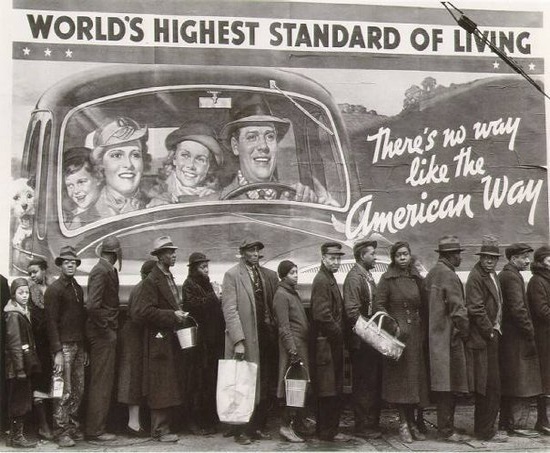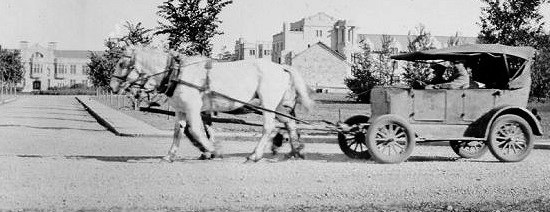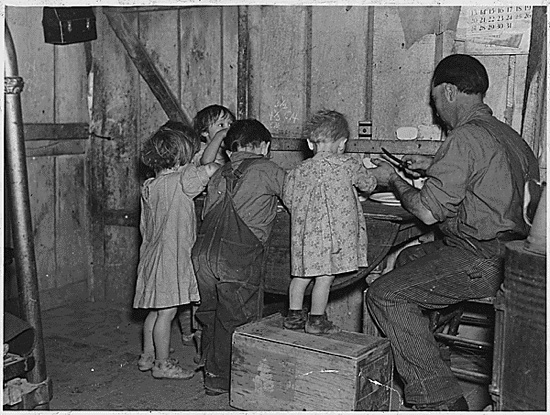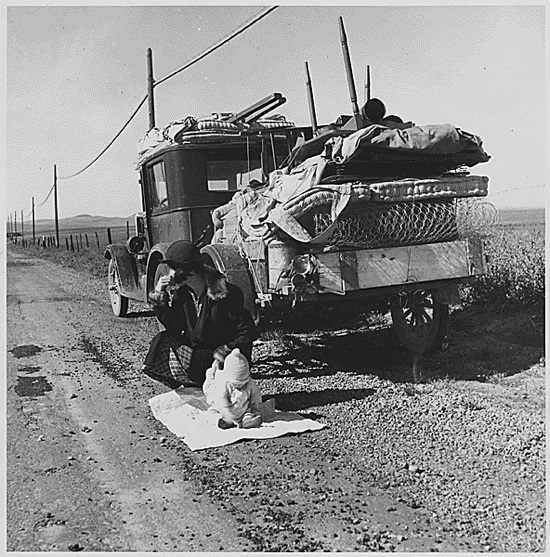

George Monbiot wrote in the Guardian earlier this year that a recession might not be a bad thing, and that perhaps there can be too much growth. He also wondered if we all have enough cars and cellphones, and don't need to keep making them. Perhaps he should be careful what he wishes for.
It is true that in times of economic contraction, there is less fuel burned and less pollution created, as industries make less stuff and there are fewer trucks carrying it. Russia's air got dramatically cleaner after the fall of Communism and all the old factories closed.
It is also true that almost all of the things that we preach as being good for the planet are also good for getting recession-ready; use less stuff, lower your heating bills, reduce your use of electricity, make your own dinner -- all these things that make less carbon dioxide also save us money. Most of them make you healthier too. Here are a few ideas from Planet Green:

Get Your Car Recession Ready
The car is one of the biggest expenses people have, and one where the changes you make can have a big impact on the amount you spend, and the greenhouse gases you generate.
Of course, the best thing you can do is ditch your car completely, and we have a couple of alternatives for that.The biggest and most cost-effective thing you can do is Throw away the keys and live car-free. According to a 2004 American Automobile Association study, the average American spends $8,410 per year to own a vehicle. That's equal to $700 per month, and a lot of potential savings when you throw away your keys.
If you can't get rid of your car, perhaps you can find or start a car pool. Not only will you save on gas and transportation expenses, but you'll also reduce carbon emissions. Plus, you'll find plenty to gab about during stoplights and rush-hour jams, which you can turn into networking and socializing opportunities.
If you need a car occasionally but not every day for commuting, car sharing is a great option. Car-sharing services offer the opportunity to have ready access to wheels, without the hassles of paying for gas and insurance, and even finding parking. ::More in Planet Green

Tighten Your Belt in the Kitchen
Here are some tips:
1. Ditch prepared meals right now Consumers have been led to believe that they don't have the time to cook and it simply isn't true. You can have a healthy meal on the table within half an hour. Prepared meals have more fat, more sugar, more salt, more preservatives, and more garbage waste than anything you can cook yourself.
2. Plan ahead: Yes, this is going to take a bit of effort, but once you get going it will be easy. Make sure you have a well stocked pantry. Canned or dry legumes, rice, pasta, canned tomatoes should all be on hand to make quick, nutritious meals.
3. Plan your week: Take the time to work out a menu plan for the week. Most people grocery shop once a week and they toss things into their carts, without considering what they really need. If you know what you are going to eat, and you have the right ingredients, you'll be less likely to call for takeout, or head out to the fast food joint.
4. Cook more meatless meals: Meat will consistently be the most expensive food item in your grocery cart. The ready availability of other protein sources allows you to expand your food repertoire and have a healthier diet.
5. If you do use meat, use less: no one needs a 10-ounce steak. Cut back on the amount of meat that you cook and increase the amount of vegetables for each serving. ::More in Planet Green

Travel Locally
"If I am going to go looking for my heart's desire, I won't go any further than my own back yard," said Dorothy in The Wizard of Oz. Marcel Proust was of the same mind: "The real voyage of discovery consists not in seeking new landscapes but in having new eyes."
They both have a point-in times of financial insecurity, perhaps it is appropriate to explore our own backyards a little more carefully. Lea Woodward from Project Woodward has some suggestions:
1. Be a local tourist: Unless you live in the middle of nowhere, you probably have several tourist attractions nearby that you've never visited before. Make a list of all the tourist destinations in your area that you've always "meant to visit", and go check them out.
2. Explore new cultures in your hometown: Many of us live in multicultural cities or towns, so we don't even have to leave our comfort zone to experience a new culture. Try sampling a new cuisine you've never tried, or visiting immigrant-owned stores. Once you start chatting with the owners, you'll be surprised at how much you can learn. ::More in Planet Green